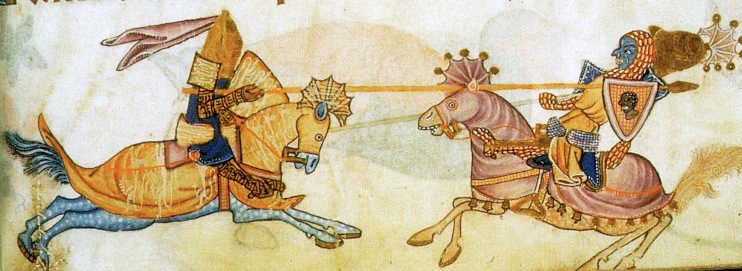Interview with Ben Kane
For his latest novel, Lionheart, Sunday Times best
selling author Ben Kane has swapped the classical antiquity of his previous
novels for medieval Europe and the Middle East. Having studied Medieval English and Old Norse literature at University, it's an era that fascinates me and Ben was kind enough to answer some of my questions on his latest work.
Tim H: You’re probably best known for your
Roman military novels. What brought about this departure in time and location?
Ben: It’s a funny thing. I have always wanted and intended to write periods
other than that of ancient Rome. Publishers, however, like something that does
well, and so I had nothing but requests for more of the same for my first
eleven novels. A plan to write a trilogy about the Hundred Years’ War was
canned in favour of the Eagles of Rome series. Since 2017, however, I have had
a new publisher, one who is keen for me to spread my wings, as it were (so I
don’t get bored as much as anything else – apparently that is one of the
reasons Bernard Cornwell moved away from Sharpe for a while).
Tim H: What particularly attracted you to
a 12th Century European setting
Ben: Many
periods of history have been covered over and again by novelists. Richard the
Lionheart is a standout character about whom relatively few novels have been
written in the last 25 years. I decided to set that right.
Tim H:: Richard the Lionheart’s life reads
like a film script. Can we expect Errol Flynn style adventure or have you taken
a different angle in your tale?
Ben: Given the
incredible richness of what he did, it would be foolish to stray too far from
what he did. The story is recounted not by Richard, however, but by his loyal
squire Ferdia – an Irishman (at last!). I can guarantee that my books will be
historically accurate, unlike 99.99% of films!
Tim H:: Richard Cour de Lion is probably
England’s most famous king. Even today you can still usually find a few fans at
England’s Six Nations games dressed up as him. As an Irishman, had you any
qualms with taking on this subject?
Ben: I certainly
did, which is why I took immense pleasure in making the main character Ferdia
an Irishman. It’s like an in-joke!
Tim H: You are renowned for the lengths
you go to in the name of research, once walking across Italy in full Roman army
kit. Will this new venture see you riding to Jerusalem on a destrier or
similar?
Ben: I wish!
That would be a trip and a half. I did travel to Israel at the beginning of
2020, however, to research the second book. An incredible trip, and an amazing
country with the richest of histories.
Tim H: Creating an authentic sense of time
and place can be hard enough for a writer without the extra hurdles of the
language and culture that is so key to historical fiction. I recently wrote a
blog for the History Quill (LINK) how something that brings this into sharp
focus is swearing. What’s your thoughts on swearing and use of authentic language?
Ben: I have to admit that my approach to it has changed a lot from my first novels, when I peppered every page, if not every paragraph, with obscenities. I did it then in an effort to make the books feel gritty, and more authentic. I was also less attentive to whether the curses fitted for the time. As time went on, and I did eccentric things like walking Hadrian's Wall in Roman armour, I found myself taking more and more pride in research and that 'sense of time and place' that is so vital to historical fiction. I changed the type of curses, reducing the use of 'fuck', which the Romans had in their lexicon, but which was more rarely used than 'cocksucker', or the hideous 'C' word. In earlier novels, I used to explain in the author's note that the 'C' word was more commonly used by the Romans than 'fuck', and I was sparing people's sensibilities by not using it. I can't remember exactly when - it might have been the Eagles of Rome trilogy - when I decided that being more authentic was better. Out went 'fuck' for the most part, and in came the 'C' word, and 'cocksucker'. And yet I found myself using curses less. Less is more, the saying goes, and I have come round to that point of view, so much so that during the writing of Lionheart, I avoided cursing if at all possible unless it was to use twelfth century oaths. They sound quaint, even funny, to the modern ear, but they are contemporary. Who knew that Richard the Lionheart's favourite curse was 'God's legs!'
Tim H:: Is Lionheart a standalone novel of
will we see more of Ferdia and Richard in the future?
Ben: It is the
first of three novels (although I have the plot of a loosely-linked fourth that
could be written in the future). The second, Lionheart: Crusade, will come out
in May 2021, and the third (title as yet unknown) will release in 2022
Lionheart is released on May 14th. You can pre-order it at this link: https://www.amazon.co.uk/Lionheart-Ben-Kane/dp/140917347X


Comments